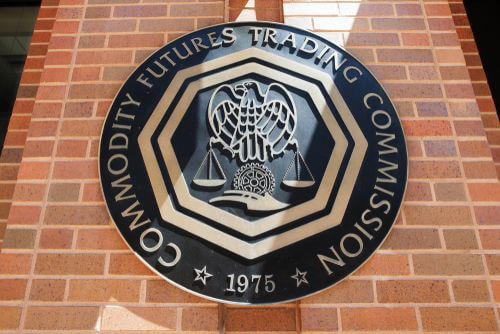- The CFTC subcommittee recommends the use of DLT-based collateral for transactions.
- Approval could expand access to digital assets for smaller market participants.
- Strong ETF inflows indicate growing institutional interest in digital assets.
In a significant development for the digital asset market, the U.S. Commodity Futures Trading Commission (CFTC) is reportedly considering a proposal that would allow the use of digital ledger technology (DLT)-based collateral for commodity and derivatives trading.
According to Bloomberg, the CFTC’s Global Markets Advisory Committee subcommittee recently voted to recommend the proposal. If approved, this proposal could streamline transactions and promote widespread adoption of digital assets in traditional finance.
One step toward mainstream adoption
If the proposal receives final approval from the main committee, the paradigm of transaction collateral management may change.
Adopting DLT-based collateral allows traders to use digital assets to settle transactions with the same speed and efficiency provided by digital ledger and blockchain technology.
This change will allow brokers to accept tokenized assets, such as BlackRock’s USD Institutional Digital Liquidity Fund (BUIDL) token, through the marketplace’s built-in system.
Using blockchain-based assets as collateral is already gaining attention from major financial institutions such as BlackRock and JP Morgan, but potential approval from the CFTC will spur broader adoption across the industry.
For now, only large corporations have been able to take advantage of these innovative financial products, but this move could open the door for smaller market players to enjoy similar benefits.
uncertainty ahead
Despite the positive momentum surrounding the proposal, several steps remain before it can be formally submitted for CFTC approval. The main committee must first review and approve the subcommittee’s recommendation, and there is no guarantee that the CFTC will approve the proposal in its current form.
Regulatory issues may arise as to which institutions and blockchains can participate, which could lead to potential restrictions that could limit the scope of the initiative.
Moreover, the broader context of digital assets in traditional finance cannot be ignored. Recent trends, such as strong inflows into physical Bitcoin exchange-traded funds (ETFs), indicate growing acceptance and interest in digital assets among institutional investors.
For example, BlackRock’s Bitcoin ETF recently outperformed its peers, recording the highest daily inflows of any fund on September 25th, marking the fifth consecutive day of inflows among all spot Bitcoin ETFs in the U.S. .
This surge in interest could impact the CFTC’s decision-making process as it considers the implications of allowing digital assets as collateral.
Throughout this process, stakeholders will closely monitor the regulatory environment as it continues to evolve, potentially paving the way for a more integrated future for digital assets in commodities and derivatives trading.

